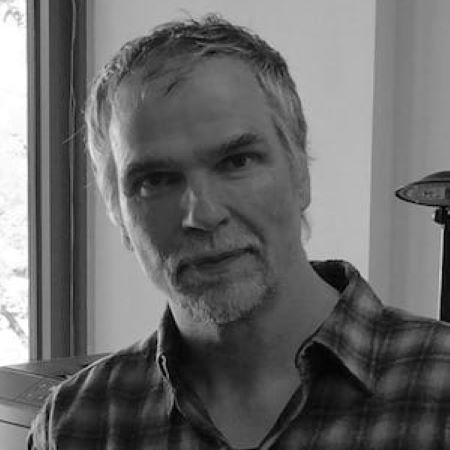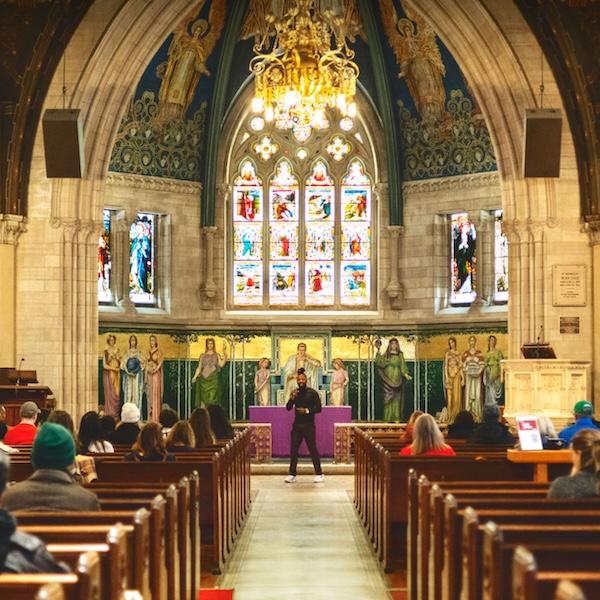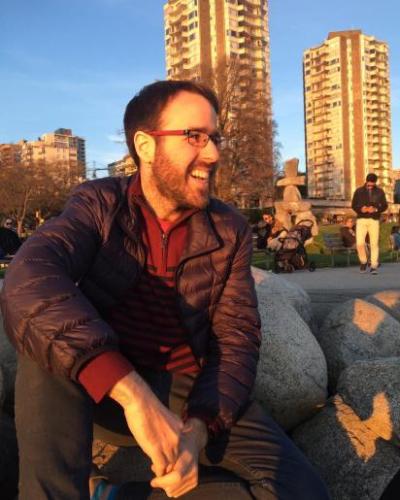When Alex “Arc” Kocurek, Assistant Professor of Philosophy in the Sage School of Philosophy isn’t hiking or playing with his adorable cat Naomi, he’s working at the intersection of linguistic, logical, and metaphysical philosophy. With an undergraduate degree in physics and philosophy from Notre Dame, Kocurek’s main focus is on large metaphysical problems.
Some of his older work emphasizes counterfactuals—questions that involve asking ‘what if.’ Kocurek studies how we understand counterfactuals and how we interpret them. He gives an example from his own life, “I do sometimes think to myself, well, what would my life be like if I had decided to go to physics grad school instead? How would it be different? How would my thinking about things be different? Would I just be working in the industry now? Or would I still be a professor?” Kocurek believes that counterfactuals are connected to our everyday lives, and that interesting insights can be gained from thinking about unique and ‘impossible’ counterfactuals.
His current work focuses on metametaphysics and the verbal disputes that exist in the field. One section of metaphysical argument discusses the impasse that exists in disputes about big philosophical questions, such as whether utilitarianism is true or if free will is compatible with determinism. Kocurek explains that some people think this problem is caused by the false assumption that philosophers are arguing about the same things. Maybe these disputes are simply verbal disputes, and the classification of these verbal disputes is what interests Kocurek the most. He believes that these verbal disputes are connected to important conceptual and theoretical questions that many other philosophers care about.
Kocurek specifically brings his background in linguistic philosophy to these metaphysical verbal disputes. A large number of his current papers focus specifically on discussing disputes over whether other disputes are verbal or factual. He uses his previous work to make sense of these arguments and discuss them in a systematic way. Kocurek suggests that the different speakers in the meta-dispute have different perspectives on what is going on in the individual speaker's head. This turns the meta-dispute into a verbal dispute, a stance he describes as anti-meta-realism.
Kocurek’s current work involves broad philosophical problems rather than engaging in debates on very particular subjects, but his work serves as a way to clarify those specific subjects. Thinking about the bigger picture can help guide first-order philosophical discussions in a clearer direction. This method of studying philosophy to clarify other philosophical discussions complements Kocurek’s view that philosophy is a communal enterprise of thought.
“A lot of philosophy historically has been seen as a very solitary enterprise. When you look at the history of philosophy, or when you teach the history of philosophy oftentimes it centers on central figures like Aristotle and Plato, Descartes, Hume, Kant, and all these other people. But I think, more and more, people are starting to realize that philosophy is very much a communal enterprise.”
Using this communal view, Kocurek is also looking at the practical application of philosophy to make important conceptual and theoretical choices. This is why Kocurek is grateful to be at Cornell, where there are resources to study these topics in philosophy, and the subject is valued by the university. He is also thankful for the openmindedness of the philosophy department at Cornell. “We all seem to be working in a very good collaborative spirit to try to figure out how to run the department and be role models for other philosophical departments and show that philosophy can be really valuable for an academic institution.”
Additionally, Kocurek’s favorite part of Cornell is teaching, especially his class PHIL 2300 “Puzzles and Paradoxes.” Each class introduces a new paradox, providing a clean slate in each lecture. The class gives a sample of all the big philosophical ideas including personhood, knowledge, decision theory, morality, and more. Kocurek says that “[the students] come away, at least I hope, with a broader understanding of the importance of some of these philosophical questions because it’s more fun to think of a philosophical question as a little puzzle, a little project you're trying to solve, rather than thinking of it as ‘what is knowledge?’ or ‘what is truth?’”
Puzzles and Paradoxes sounds like an enjoyable and engaging course, especially for students who only want a small introduction to philosophy. Kocurek says that the majority of students are STEM majors, and seeing the broader understanding that they come away with by the end of the semester is one of his favorite things.
At the end of the day, all of Kocurek’s work connects back to his interest in understanding what philosophy is in general, and what we’re really doing when we study philosophy. Having those discussions about metaphysical issues may start at a broad scale, but all of the information trickles down to the smallest levels of philosophy eventually.





